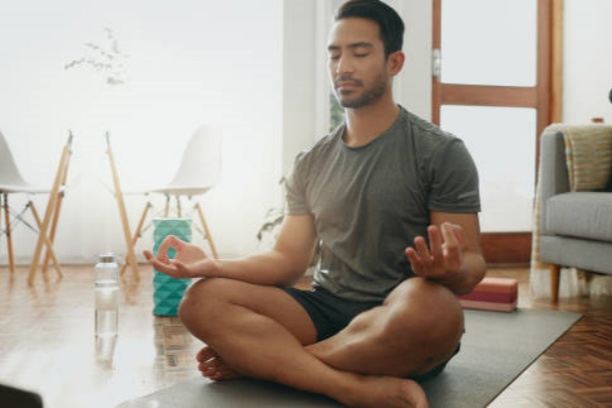
The door of Ch’an is entered by Wu. When we meditate on Wu we ask “What is Wu?” On entering Wu, we experience emptiness; we are not aware of existence, either ours or the world’s.
E-MAIL: admin@relaxmid.com

Whether it’s in a world of endless distractions or a world of stress, being unable to find effective and relaxing ways to unwind is a major reason as to why people don’t take care of themselves and let their bodies take over. Calm the mind, lower stress, boost focus, meditation has been a big thing. Much the same, aromatherapy—using natural essential oils, made from plants—is known for its relaxation and emotional balance benefits too. Combining these two practices produces a powerful synergy which adds to relaxation, alleviation of stress, and deepens your meditation.
To understand why aromatherapy and meditation complement each other so effectively, it’s essential to look at how they work individually:
Meditation allows the mind to focus, and it will help you with mindfulness and reducing stress. It activates the parasympathetic nervous system — slows your heart rate and calms your body. Meditation also helps us to become clearer emotionally and to better connect in the present moment.
By interacting with the limbic system of the brain — the system responsible for controlling emotions, memory and stress responses — essential oils are able to assist your body with better functioning in these areas. Certainly inhaling these natural scents can change one’s mood, relieve anxiety, and help with relaxation.
Having said that, when the areas of meditation are combined with the aromatic surroundings and the deepening of sensory experience, meditation gets deeper and gets more potent.
Adding aromatherapy to your meditation routine offers a range of benefits that elevate your practice:
Here’s a breakdown of some of the best essential oils to use for various meditation goals:
So that you can choose what you need based on what you wish to achieve with your meditation session, each essential oil has its own properties.
Here are some practical ways to integrate aromatherapy into your meditation practice:
Essential oils are then dispersed in a gentle equal metering fashion into your space with a diffuser. When choosing an oil to use for morning and evening sessions, you can choose a calming oil like lavender or an energizing oil like lemon.
Essential oils are best used in small amounts, so add a few drops of essential oil to a carrier oil (coconut or almond are great options) and rub it on your wrists, temples or even the back of your neck. The scent is so subtle it will follow you the whole time you meditate.
Plantations of essential oils offer one way to enhance your meditation environment by placing a few drops of the essential oil on a cotton ball or tissue. Leave it near you so you can infiltrate the air with a flowery, chill scent.
I suggest using essential oils, aromatherapy candles or incense sticks. They could be a nice calming addition and improve the sensory experience.
Take deep breaths a few inches away from an essential oil bottle before meditation. It’s this simple and it can help set the tone for your session.
Match mindfulness meditation with a calming scent such as lavender to deepen your association with the current moment. Pay attention to the aroma as a point of silence when your brain drifts.
When you are using grounding scents with frankincense or cedarwood to support grounded meditations for relaxation or spiritual growth or emotional healing, the scent for oils and essential oils will support that call.
Lying in conscious rest is a meditative practice. Soak it in soothing scents like chamomile or sandalwood, it will really aid in helping you wake up.
Find a scent that makes you feel uplifting—nothing too overpowering, like bergamot or orange, that also works well with visualization of peaceful environments or personal goals.
While essential oils offer incredible benefits, it’s important to use them safely:
Scientific studies validate the combined benefits of aromatherapy and meditation:
When you pair aromatherapy with meditation, you get a multi-dimensional, and immersive, relaxing experience. Meditation allows you to combine the physical and mental benefits with soothing scents of essential oils to anchor deeper focus and emotional balance. Integrating the power of this duo into every day routine enables you to create a holistic treatment for life’s stress and ultimate relaxation.
This book is suitable for scholars interested in Zen meditation, those new to Zen practice, and individuals seeking clarity on Zen methods. It is a compilation of Master Sheng Yen’s lifelong teachings on Zen meditation, encompassing foundational sitting meditation techniques, including adjustments for the body and mind, specific guidance on leg, spine, hand, shoulder, tongue, mouth, and eye positioning, walking meditation methods, breath regulation, and mental adjustments. It provides detailed descriptions of Heterodox Zen, Zen sitting meditation, Silent Illumination Zen, Koan Zen, and post-enlightenment sitting meditation. It serves as a specific guide to meditation methods and is an essential book for practitioners of Zen meditation.
